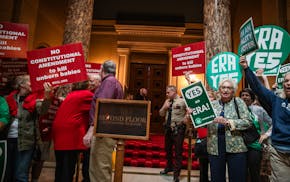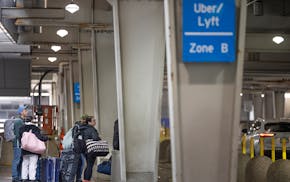As a science-fiction fan, I've always been fascinated by warp drive, wormholes, transporters and many more phenomena. And, as the history of civilization shows, humans of the future will be more knowledgeable, more experienced, more logical and more rational than we are today. Taking this as true, it's a good bet that our descendants will power their planet with an energy source mimicking or approximating the sun.
Nuclear fusion research has been ongoing since before 1950. There are many working fusion reactors in active research focusing on initiation and efficiency issues. Today, we have at our disposal fission reactors, the latest designs of which are almost intrinsically safe, efficient and clean; produce no or very little waste, and are economical. We can consider fission technology a bridge to fusion technology, the infinite and planet-preserving energy source of the future. What a shame it will be if future civilizations cannot enjoy the miracle of fusion to eradicate poverty in a flourishing world because we did not deploy nuclear fission technology today. We are all more or less ignorant and susceptible to fear, and ignorance and fear are powerful impediments to progress. But when it comes down to survival, maybe it's faith that will save us — faith in the science.
Steven Boyer, St. Paul
• • •
It is a dark, windless 6:30 a.m. when I open my Star Tribune to read that a "Large solar farm wins approval" (Jan. 21). I am warm and cozy with my paper in my retirement community apartment, heated by an electric ignition heating system, omelet warmed on my electric stove and the Green Line purring past on its way to Minneapolis. It will be a few hours before the sun is high enough to stir electrons from those solar panels, or even longer before there is enough wind to turn those big wind turbine blades.
Fortunately, downriver at Prairie Island, there is nuclear plant that produces a constant 8 billion kilowatt-hours per year, night and day, rain or shine, wind or calm. This will be a big help at night to those 25,000 homes that the new solar farm is supposed to supply. Solar panel systems worldwide have capacity factors of about 15 percent, which is the percent of round-the-clock capacity that they actually produce. Nuclear plants like ours at Prairie Island are over 90 percent, and their down time is mainly the every-two-year stoppage for fuel replacement and maintenance. The Jan. 21 article notes that Minnesota expects to reach 750 megawatts of rooftop solar by late 2017. Applying solar's capacity factor, that is about one-tenth of Prairie Island nuclear's round-the-clock output.
There is a place in our economy for carbon-free renewable energy like wind and solar. But to really replace the huge output of fossil-fuel electric power, we will need carbon-free nuclear and low-carbon natural gas.
Rolf Westgard, St. Paul
ARCTIC OIL
Hot oceans are not good for anyone. Let's do the right thing.
As depressing as it is to hear that we are heating up our oceans at an unprecedented rate ("Oceans' man-made heat doubled since '97," Jan. 19), it does give us another huge reason to say no to plans to drill for oil in America's part of the Arctic Ocean.
During his final State of the Union address, President Obama talked about America leading on climate change, saying: "Now we've got to accelerate the transition away from dirty energy. Rather than subsidize the past, we should invest in the future — especially in communities that rely on fossil fuels." Alaska and America's Arctic are being disproportionately impacted by climate change.
There's growing evidence that the Arctic sea ice stabilizes the jet stream, and with it weather patterns felt in Minnesota and around our nation. We must protect the Arctic — what happens there affects us all. To that end, there will soon be a chance for the public to participate in the crafting of the next five-year management plan for our oceans. In the Arctic Ocean, we should take drilling for dirty fossil fuels off the table. Let us say no to any new leasing.
Lois Norrgard, Bloomington
The writer works in the Upper Midwest Field Office of the Alaska Wilderness League.
SYRIA
Assad's hands are not clean, but neither are America's
The Jan. 18 editorial, advocating for regime change in Syria ("With Assad in power, peace isn't possible") served mostly to reinforce the deeply misleading official narrative on Syria. Yes, the regime of Bashar Assad has committed terrible war crimes, but America's hands are not clean in the conflict. Aid has been prevented from reaching Madaya not solely by Assad forces but also by U.S.-backed, Al-Qaida linked rebels. See Margaret Kimberley's reporting on the topic for Black Agenda Report. The focus on Madaya and the distortion of the situation draws attention away from the more than 300,000 Syrians facing similar conditions in the contested cities, as the United Nations reported this month.
In 2011, the supposedly humanitarian bombing of Libya led to the infamous Benghazi attacks and continues to help the Islamic State in Iraq and the Levant. We seem not to have learned anything from what went wrong with Moammar Gadhafi and Libya, and indeed numerous other U.S.-sponsored coups throughout history. The media once again show almost no resistance to the interventionist policy pursued by President Obama and soon to be pursued by the next president, if campaign promises are any indication. Ultimately, using the starving people of Madaya as a way to advance imperialist ends is as disgusting as it is commonplace.
Luc Janssen, Minneapolis
• • •
Many thanks for the thoughtful, well-informed editorial on Syria. As it stated, many look at Assad as a lesser evil than ISIL. However, Syrians and many analysts know that Assad assisted the growth of ISIL. He released some of ISIL's leadership from his prisons in 2011, helping to create the extremist force that he claimed to be fighting. He rarely bombed ISIL territory and helped finance it by paying it for oil. He hoped the world would see him as the secular alternative to ISIL.
Leaving Assad in power is not part of an effective strategy for defeating ISIL — it leaves in place the regime that has fostered ISIL's expansion. As the editorial emphasized, the peace process must include an end to Assad's rule.
Terry Burke, St. Louis Park
MINNEAPOLIS PARKS
How a land deal, tree grinding and veterans fit together
The Jan. 19 article concerning the proposed Minneapolis park officials' purchase of riverfront land in northeast Minneapolis, though not completed, is a good sign for the Park Board.
As a veteran, one sentence in the article caught my attention. The line "for the short term, park officials hope to use the property as a tree-grinding site to replace one they must vacate in the Fort Snelling area." The site referred to at Fort Snelling is 150 feet from the main entrance to the CommonBond homeless veterans facility. This fully operating surface lot grinds diseased, infested and rotting trees, turning them into sawdust.
I, and some fellow veterans, have tried through many channels to close this grind facility because it negatively impacts the health, safety and quality of life for the vets living at CommonBond. That facility was supposed to have closed before CommonBond opened in October 2015.
We were told in November that an agreement had been reached for a northeast property. In December, we were told the deal had fallen through. As options and negotiations lag on, the veterans trapped behind this will continue to be disrupted. We had suggested to the Park Board that it discontinue using the site until a new location is acquired. However, the grinding goes on.
James Hudson, Minneapolis
Pass guardrails for HCMC governance changes

Minnesota needs an ERA that includes gender and reproductive freedom

Legislature must clarify sex, gender before putting an ERA before Minnesota voters

Legislature must act — properly — on Uber and Lyft before adjourning

